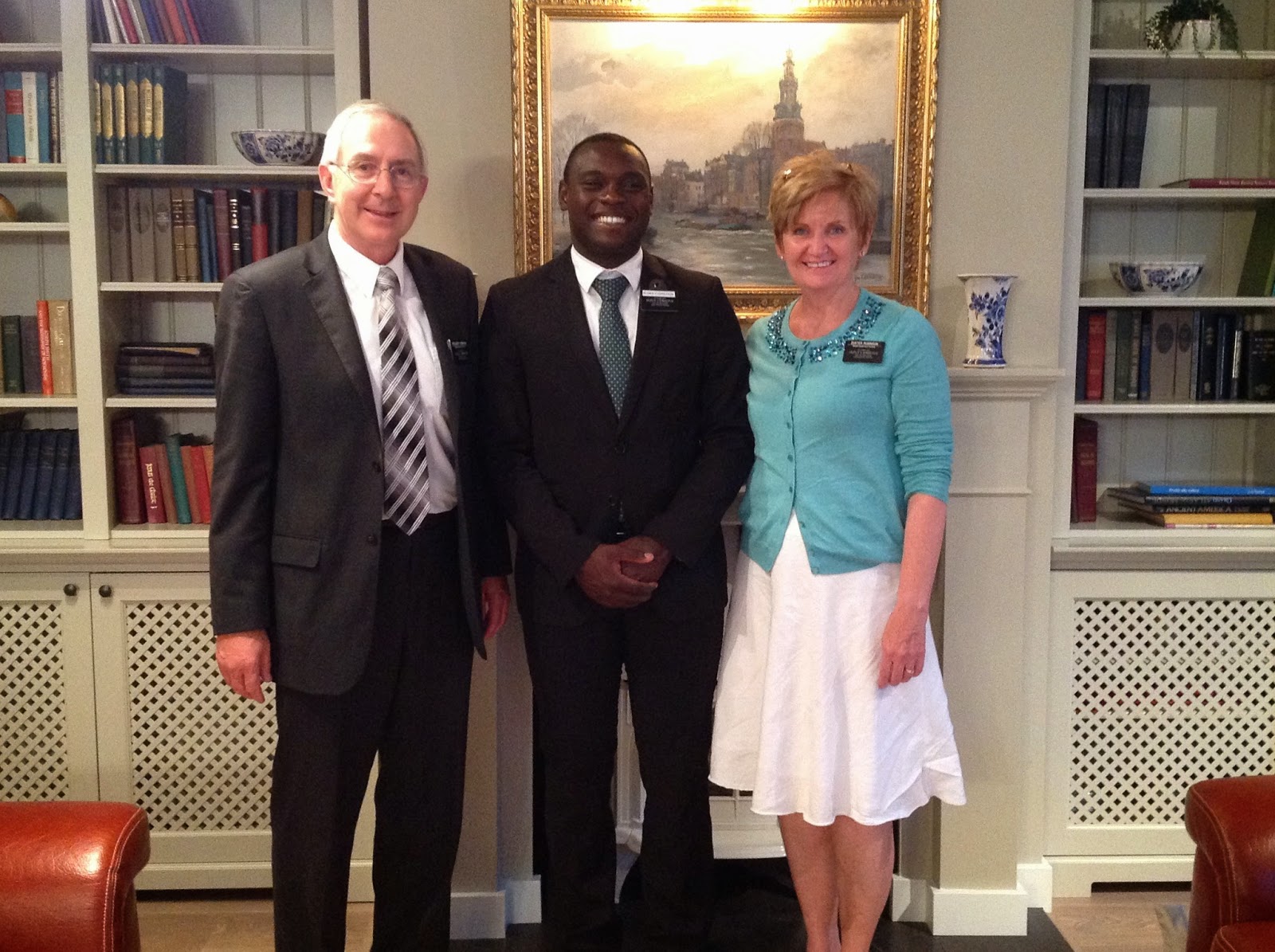Leadership in the Church
Every
missionary is a leader. You lead investigators and members to become, “true
followers…of Jesus Christ,” (Mor. 7:48) in the work of salvation. This is the purpose of leadership in the
church and is behind every calling in the church including calls to lead a
companion or other missionaries in the mission field. Section 3 of Handbook 2, Church Administration, outlines principles of Leadership in the
Church as you help others become faithful disciples. These leadership principles transcend the
church and also work in business, at home and other relationships in your life. These principles are worth learning and
perfecting.
Prepare
Spiritually. I am a jogger. I do not know if it makes me healthier but jogging
in the morning makes me feel better all day long. Jogging prepares me for a good day. Early one Sunday morning in Flowell, Utah in
November 1996, I was jogging past our Ward meeting house. The pickup trucks of the Bishopric were
parked in the parking lot; they were meeting in the building. I remember thinking about the great work they
had done for the past 5 years. It
occurred to me that they should soon be released. The Spirit then flooded over me and I not
only knew I would be the new Bishop but I was also given who my councilors
should be. I stopped and looked at the
building, amazed at what had just happened.
When the call came in late December, I had already humbled myself before
the Lord and begun spiritually preparing myself for that intense and rewarding
experience. Leaders must be converted
and be growing spiritually. Through this
preparation you will receive inspiration to guide you in your personal life and
your calling. The Lord said, “…if ye
are prepared ye shall not fear,” (DC 38:30). You are all leaders.
Participate
in Councils. All levels in the church are governed by
councils such as the Council of the First Presidency, the Bishopric, Ward
Council, Relief Society Presidency, High Council, Mission Leader Council, etc. In councils, leaders meet under the direction
of the presiding officer. Members of
councils are encouraged by the presiding officer to share their honest feelings
and ideas, communicate clearly and listen to one another. Effective councils unify their efforts in
responding to needs of individuals first and then the organization. The presiding officer has the responsibility
to make the final decision, but this normally comes only after unity is reached
by members of the council.
At Sunrise
we tried to duplicate this church leadership model. As the CEO, I appointed two Senior Vice
Presidents, we were akin to a Stake Presidency.
We counseled with each other and delayed decisions regarding day to day
operations until we were unified. The
Board of Directors was much like a High Council. As President of the Board I tried, and
usually succeeded, in encouraging discussion of issues (the strategic and
corporate policy decisions) until unity of all Board members was reached. Our rule was that every member always publicly
supports the decision after the meetings.
You must
always play your role in a council run organization for that organization to
work with harmony and unity. For
example, at various times, I have been the Bishop or the presiding officer, a
member of the Ward Council such as Young Men President and a Sunday school
teacher not on the Ward Council. As the
bishop I had to facilitate discussion and make decisions. As a council or organization member, I was
responsible to follow my leader.
Minister
to Others. The most important function of leadership in
the Church is to minister to the spiritual and temporal needs of
individuals. Ministering means to reach
out to individuals, love them without judging them, remember their names,
establish sincere friendships, teach them, etc.
Managing the organization is not the top priority. This Lord said:
5 Wherefore, be faithful; stand in the
office which I have appointed unto you; succor the weak, lift up
the hands which hang down, and strengthen the feeble knees. (DC 81:5)
106 And if any man among you
be strong in the Spirit, let him take with him him that is weak,
that he may be edified in all meekness, that he may become strong
also. (DC 84:106)
Always be
training your replacement and your greatest desire should be to see people
excel. After I served as Bishop the next
two Bishops in the Flowell Ward had been my Executive Secretary and my 2nd
Councilor. Plus, I was happy to see a
substantial up-tick from my performance when those two gentlemen served as
Bishop. Give people opportunities to
serve and the Lord will qualify those he calls as they exercise faith, work
diligently, receive instructions and receive support. Another word for this is delegation. Always explain the purpose of assignments,
check their progress, express appreciation for their efforts and ask people to
report back.
Teach
the Gospel of Jesus Christ. All leaders are teachers. Most everyone has been to seminars where famous
speakers come and deliver very appealing speeches that inspire. You resolve to change your life and 9 times
out of 10 by the end of the week you have forgotten what was said and you are
back to your old habits. But, effective teaching
by leaders not only inspires people but also motivates people to do something
different.
The most
powerful teaching of leaders comes from their personal example. At Sunrise, I had been in the business for 35
years, I had successfully done many projects and seen many situations. My employees knew this and therefore my
personal example gave me moral authority.
I could literally say, “Follow me.
I have done this successfully before.”
They respected that and welcomed the assistance on their projects.
At
Sunrise, I taught the doctrine of engineering to employees: how to design projects to deliver the best
value for the client’s dollar, how to write contract documents to keep us out
of court, how to work effectively with contractors, clients and agencies, etc.
In the
Church, you teach doctrine of the gospel from the scriptures and latter day
prophets. Ensure that teachings are
meaningful, edifying, doctrinally sound and needed. Warn against sin but love the sinner. Always encourage reverence, a calm and
peaceful attitude of worship and respect toward God.
“The study of the doctrines of the gospel
will improve behavior quicker than a study of behavior will improve
behavior.” (Boyd K. Packer, Little Children, Nov. 1987 Ensign)
Administer
the Organization. At Sunrise we understood that regardless of
the engineered piping and concrete we put into the ground with excellent blue
prints and engineering procedures, we were still in the people business. Every business activity was focused on the
people we worked for or with on each project.
We found much less success when we focused on the project instead of the
people we were serving.
The whole
purpose of church leadership is to do the work of salvation by assisting people
to be true followers of Jesus Christ.
The organization must still be operated and programs planned, but it is
essential that leaders organize and plan activities, lessons and other efforts
to bless the lives of individual people.
Always plan with a purpose to this end and evaluate after the activity
how well the plan accomplished its purposes.
Always use church handbooks, reports, instructions, training materials
and magazines to help fulfill your duties.
President
Robinson















































